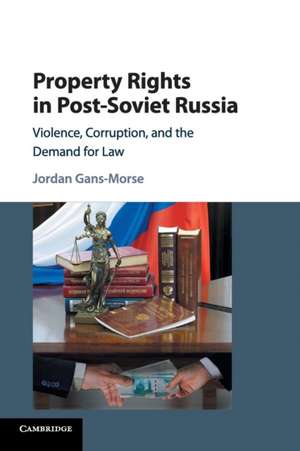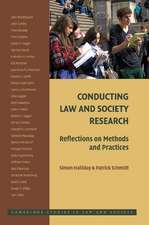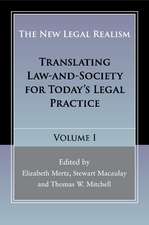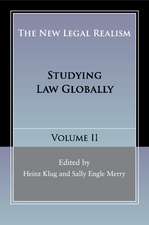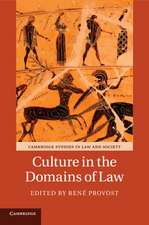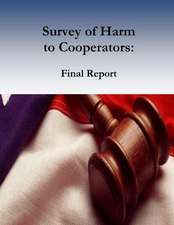Property Rights in Post-Soviet Russia: Violence, Corruption, and the Demand for Law
Autor Jordan Gans-Morseen Limba Engleză Paperback – 9 mai 2018
| Toate formatele și edițiile | Preț | Express |
|---|---|---|
| Paperback (1) | 237.16 lei 43-57 zile | |
| Cambridge University Press – 9 mai 2018 | 237.16 lei 43-57 zile | |
| Hardback (1) | 573.74 lei 43-57 zile | |
| Cambridge University Press – 3 mai 2017 | 573.74 lei 43-57 zile |
Preț: 237.16 lei
Nou
Puncte Express: 356
Preț estimativ în valută:
45.38€ • 47.51$ • 37.55£
45.38€ • 47.51$ • 37.55£
Carte tipărită la comandă
Livrare economică 07-21 aprilie
Preluare comenzi: 021 569.72.76
Specificații
ISBN-13: 9781316607848
ISBN-10: 1316607844
Pagini: 310
Ilustrații: 23 b/w illus. 21 tables
Dimensiuni: 153 x 230 x 18 mm
Greutate: 0.42 kg
Editura: Cambridge University Press
Colecția Cambridge University Press
Locul publicării:New York, United States
ISBN-10: 1316607844
Pagini: 310
Ilustrații: 23 b/w illus. 21 tables
Dimensiuni: 153 x 230 x 18 mm
Greutate: 0.42 kg
Editura: Cambridge University Press
Colecția Cambridge University Press
Locul publicării:New York, United States
Cuprins
1. Violence, corruption, and demand for law; 2. Institutional supply and demand; 3. The evolution of firm strategies; 4. The role of state legal capacity; 5. Demand-side barriers to the use of legal strategies; 6. The effectiveness of illegal strategies; 7. Variation in strategies across firms; 8. Firms, states, and the rule of law in comparative perspective.
Recenzii
'When do firms turn from private enforcers to the state to protect their property? Jordan Gans-Morse takes up this central question in political economy in his study of the evolution of strategies to strengthen property rights in contemporary Russia. Focusing on the demand-side determinants of firm strategies, he deftly depicts how strategic interaction among firms, the concentration of ownership, and market conditions shape decisions to turn to the state for protection. This is an excellent contribution to the growing literature on property rights in comparative politics.' Timothy Frye, Chair, Department of Political Science, Columbia University, New York
'Organized crime, business-state relations, post-communist legal development - Jordan Gans-Morse's brilliant Property Rights in Post-Soviet Russia ties it all together. Read this book and find out why Russia today is so different from Russia in the 1990s.' Scott Gehlbach, University of Wisconsin, Madison
'When do firms rely on violence to enforce contracts? And why would they turn to the law, even when it does not work? Jordan Gans-Morse's book is a fascinating, clear and compelling answer to these timely puzzles. Bringing in a wealth of diverse evidence, he argues the firms' counterfactual thinking and beliefs about the barriers to using the law lie at the heart of their decision-making. The implications for the study of property rights, institutional formation, and state capacity are enormous.' Anna Grzymala-Busse, Michelle and Kevin Douglas Professor of International Studies Department of Political Science, Stanford University, California
'Organized crime, business-state relations, post-communist legal development - Jordan Gans-Morse's brilliant Property Rights in Post-Soviet Russia ties it all together. Read this book and find out why Russia today is so different from Russia in the 1990s.' Scott Gehlbach, University of Wisconsin, Madison
'When do firms rely on violence to enforce contracts? And why would they turn to the law, even when it does not work? Jordan Gans-Morse's book is a fascinating, clear and compelling answer to these timely puzzles. Bringing in a wealth of diverse evidence, he argues the firms' counterfactual thinking and beliefs about the barriers to using the law lie at the heart of their decision-making. The implications for the study of property rights, institutional formation, and state capacity are enormous.' Anna Grzymala-Busse, Michelle and Kevin Douglas Professor of International Studies Department of Political Science, Stanford University, California
Notă biografică
Descriere
This book looks at how top-down efforts to strengthen property rights are unlikely to succeed without demand for law from private firms.
